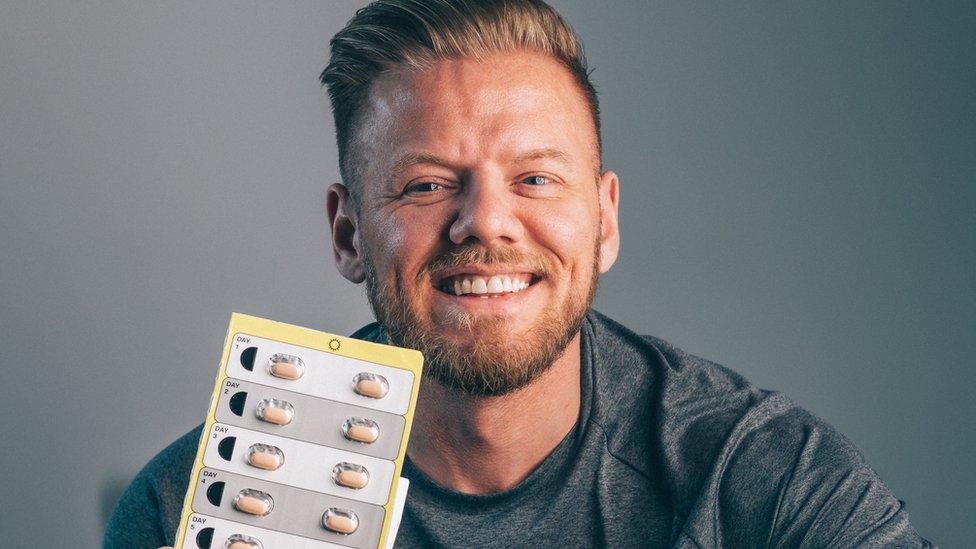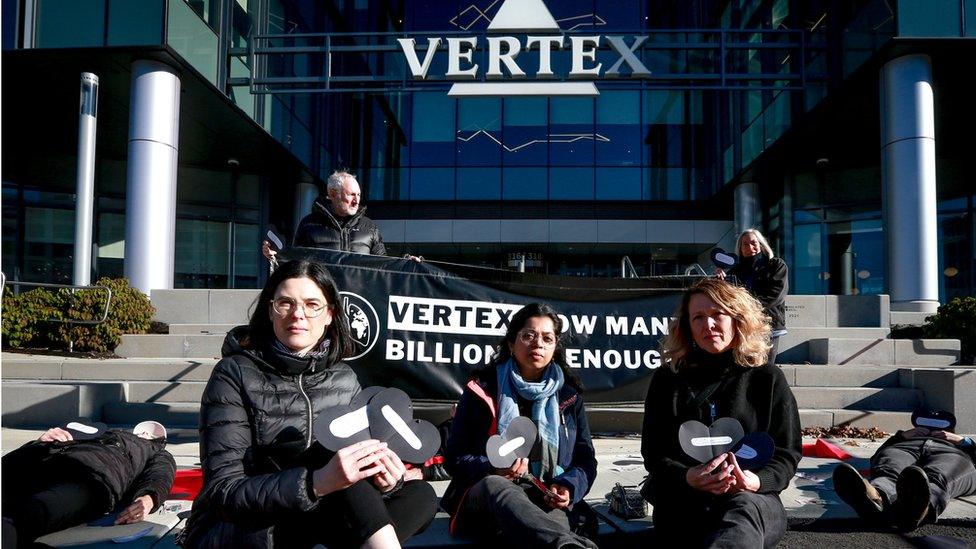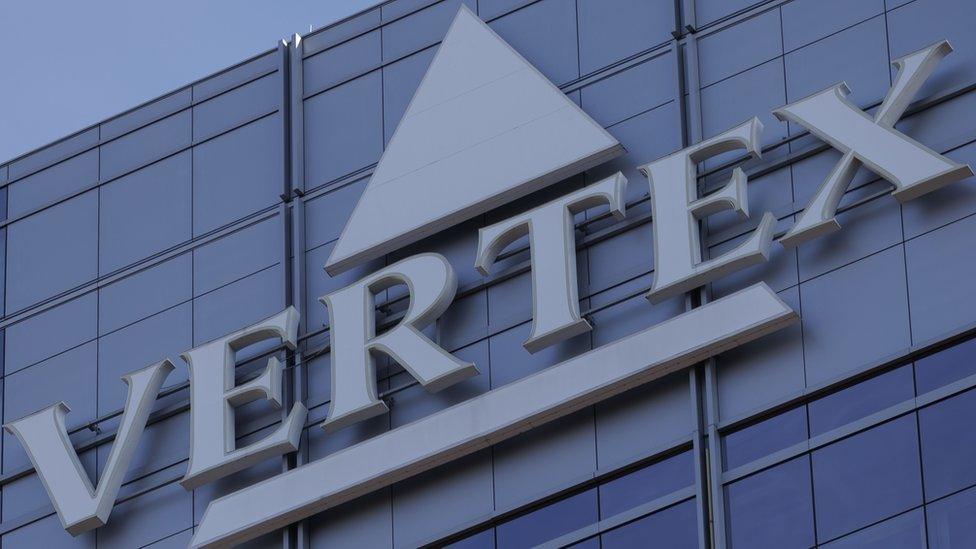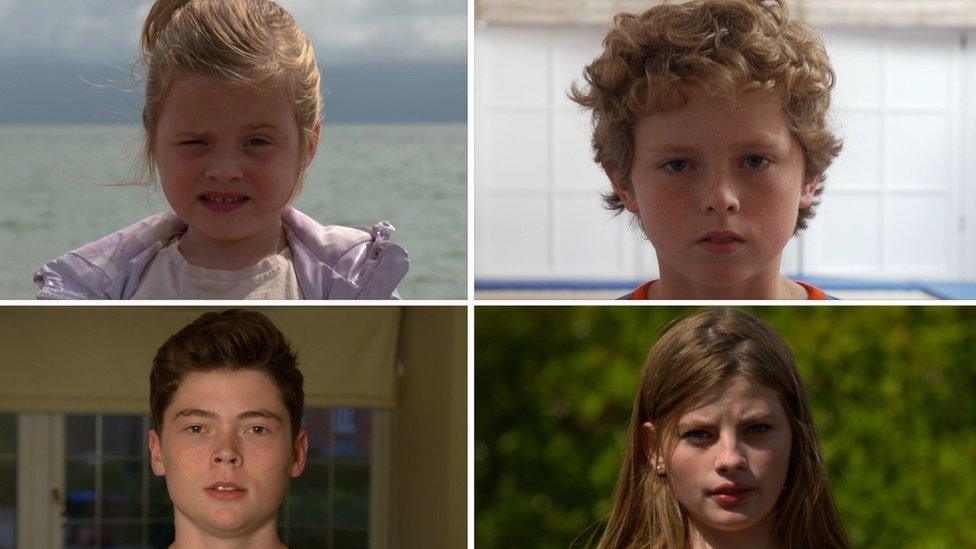Cystic fibrosis: The miracle drugs priced out of reach
- Published

Cystic fibrosis causes thick mucus to build up in the lungs
When Vertex Pharmaceuticals developed a treatment for genetic condition cystic fibrosis (CF), it was hailed around the world as a "groundbreaking" moment for patients.
For the first time, the condition - which often causes patients to die before their 40s, as mucus clogs and damages their lungs - could be treated at the root cause, by bypassing the genetic errors responsible for the disease.
But these treatments are thought to cost the NHS well over £100,000 a year per patient.
The newest of the so-called modulator drugs, Kaftrio, has proven effective for about 90% of CF patients - but with more than 11,000 in the UK, it would, at list price, cost the NHS more than £1bn a year.
And last month, National Institute for Health and Care Excellence (NICE) draft guidance, external deemed the drugs too expensive.
Patients will continue to have access to them during the appraisal process - but parents worry young children might not be eligible if NICE recommends withdrawing funding.

Marc Cotterill says his life was "saved" by Kaftrio
"Parents are right to question NICE, to make sure it has the right data to assess the drug correctly, particularly given that CF is a rare condition and that the benefits of early access might not be realised for many years or even decades," Marc Cotterill, 41, who has CF, says.
"But equally, we need to protect our NHS - its budget is limited.
"We can sit here and point the finger at NICE and assume they're trying to put a price on a life - but the problem is the price itself set by Vertex Pharmaceuticals.
"This drug has to be affordable and sustainable. It's not a one-off drug. Once on it, patients need it for life in order to enjoy the benefits."
Mr Cotterill says Kaftrio "saved" his life. And he cannot remember the last time his lung capacity was as good as it is since he started the treatment - currently, 80% functioning.
Extra cost
Other countries around the world are also arguing the price set by Vertex Pharmaceuticals for Kaftrio is too high. The US, external, Dutch, external and Canadian, external authorities have called for large price reductions.
But the company says it is "disappointed" by the draft NICE guidance and disagrees with some of the "key evidence that NICE has selected to use, which has a significant impact on the way that our medicines are valued, particularly underestimating the costs of caring for people with CF and the impact that CF has on a person's quality of life".
A Bristol University study, external, released in January, showed the average extra cost of having CF was more than £6,500 a year.

Campaigners from Lithuania, India and the UK, whose children have CF, at Vertex Pharmaceuticals headquarters
Patent law has allowed Vertex Pharmaceuticals to carefully guard its monopoly of these drugs.
But World Trade Organization agreements and national laws include flexibilities designed to ensure citizens' right to life are not threatened by intellectual-property rights - and patients are challenging the company's patents.
In February, legal papers were filed with the South African High Court, seeking a compulsory licence that would allow the supply of more affordable generic versions of the CF drug.
Petitions to revoke or suspend Vertex Pharmaceuticals' patents have also been submitted to the governments of India, Ukraine, and Brazil.
The company declined to comment on the legal processes in progress.
Vertex is running a pilot donation program to provide Kaftrio at no cost to eligible patients in 10 countries. The company says the learnings from these pilot countries will inform the future of this program.
Operating expenses
Research led by Dr Andrew Hill, of the University of Liverpool pharmacology department, found the basic production cost, external for these drugs was less than $6,000 (£4,790) a year per patient.
But this does not include the significant costs involved in research and development (R&D).
"The price of our medicines reflects their clinical value and benefits to patients, caregivers and healthcare systems," Vertex Pharmaceuticals told BBC News. And list prices "published at the time of marketing authorisation do not reflect the final reimbursed price agreed with the local health authorities which is confidential".
"Each year, we reinvest over $1bn into developing new medicines for people with CF, and others, who today have few or no treatment options, dedicating three out of every five Vertex employees to that purpose," the company said.
"More than 70% of our operating expenses are dedicated to R&D, well above the average of the top pharma and biotech companies in the industry."
'Hugely inflated'
Understanding the price of developing a new treatment is hugely complex.
But Diarmaid McDonald, the director of Just Treatment, which campaigns for lower-cost drugs for NHS patients and globally, says the industry should be more transparent.
"We have no idea of the real cost of clinical trials or the other costs involved in developing these drugs - though industry figures on R&D spend are criticised as hugely inflated," he says.
"We also don't really know what the NHS or other countries are paying for them or the details of the deals they are negotiating.
"It makes it really hard to judge whether we're getting value for money."
Expiry date
The NHS says patients already on these drugs will continue to have access to them while the negotiation continues.
But patients will nevertheless be worried about their future.

Those old enough will remember the last such process between NICE and Vertex, which involved Kaftrio's predecessor, Orkambi, another CF drug.
The negotiations lasted years and saw Vertex destroy nearly 8,000 packets of the drug, external, as they passed their expiry date before the price was agreed.
Buyers club
During these negotiations, the NHS called Vertex Pharmaceuticals, external an "extreme outlier" among pharmaceutical companies because of its hard line trying to secure a high price.
The government began discussing, external invoking what is known as a Crown use licence, which would have swept aside the company's exclusivity rights to these drugs and allowed the UK to buy in generic, vastly cheaper versions of the treatment.
In the end, Vertex Pharmaceuticals returned to discussions and a deal was finally agreed.
But some patients, desperate for access to these drugs in the meantime, took matters into their own hands and created a buyers club, flying to Argentina to buy a generic version produced by a company there.
In its latest financial results, Vertex Pharmaceuticals raised the amount it expects to bring in via CF product revenue to about $9.85bn, external.
And these results were published before the announcement, external the UK Medicines and Healthcare products Regulatory Agency had extended the licences of Kaftrio and Kalydeco to two- to five-year-olds, which will increase the amounts needed for NHS patients.
The second NICE committee meeting to discuss the comments submitted during the consultation period is on Thursday, with a final recommendation regarding NHS funding for these treatments expected next spring.
Vertex Pharmaceuticals says it is "committed to working collaboratively" with the NHS and NICE to secure "long-term access" for new patients who may benefit from these treatments following the conclusion of the NICE evaluation.
The company stresses that the NICE process will not impact access for patients who are already taking these medicines or who may start taking it in the near future.
"Access for these patients will continue irrespective of the outcome of the NICE process," says Vertex,
Related topics
- Published16 November 2023

- Published22 September 2019

- Published17 May 2015
